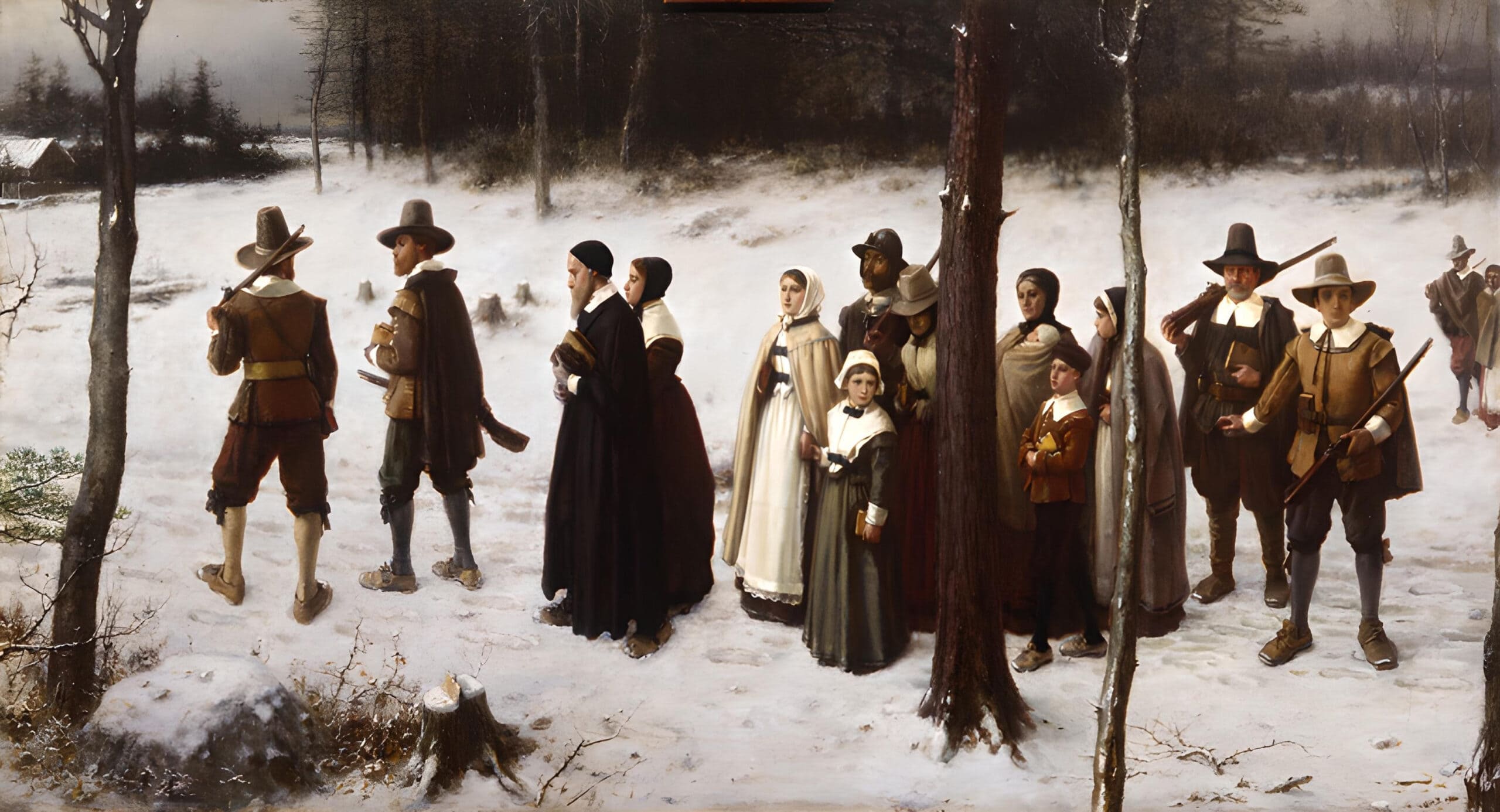
Pilgrims Going to Church by George Henry Boughton
There are currently approximately 2.3 billion Christians worldwide. Although Islam is the fastest growing global faith, Christianity remains the world’s largest religion. Likewise, in the United States, despite decades of declining numbers, Christians are still the largest religious group. And of the three main branches of Christianity – Catholicism, Protestantism, and Orthodox – Protestants make up the vast majority of American Christians. Roughly half of Americans are Protestants of one denomination or another. That’s compared to less than 23% that are Catholics, with people who have no religious affiliation nearing 22%.
Despite falling numbers, Christians are perhaps the most impactful voting groups in the country. Protestants, particularly Evangelicals, have had an outsized impact on American politics for generations. In the 1980s, the Republican Party, led by President Ronald Reagan, started courting the so-called Religious Right. Since then, conservative Christians have been a powerful political bloc, reshaping the GOP and helping put Donald Trump in the White House.
For these reasons, and more, understanding the political and social character of the United States means understanding Protestantism.
The History of Protestantism
Protestantism began in the 16th century, during the transformative era known as the Reformation. Influential figures like Martin Luther, John Calvin, and Huldrych Zwingli emerged, seeking to reform the Roman Catholic Church.
At the forefront of this movement was Martin Luther, a German priest, who boldly challenged the Church’s practices in 1517 with the posting of his 95 Theses. This ignited the Reformation, reshaping the theological landscape and launching Protestantism. In addition to the basic tenets of Christianity, these three beliefs set Protestantism apart from Catholicism:
- Sola scriptura: The Holy Bible alone is the ultimate authority on matters of faith and practice. Rejecting papal authority and traditions, Protestants ground their beliefs solely in scripture.
- Salvation by faith alone: Salvation is a gift of divine grace, received only through faith in Jesus Christ, not through good works or human merit.
- Priesthood of all believers: All Christians have direct access to God, without the need for intercession from priests or intermediaries. Protestants believe they can have a personal and intimate relationship with God.

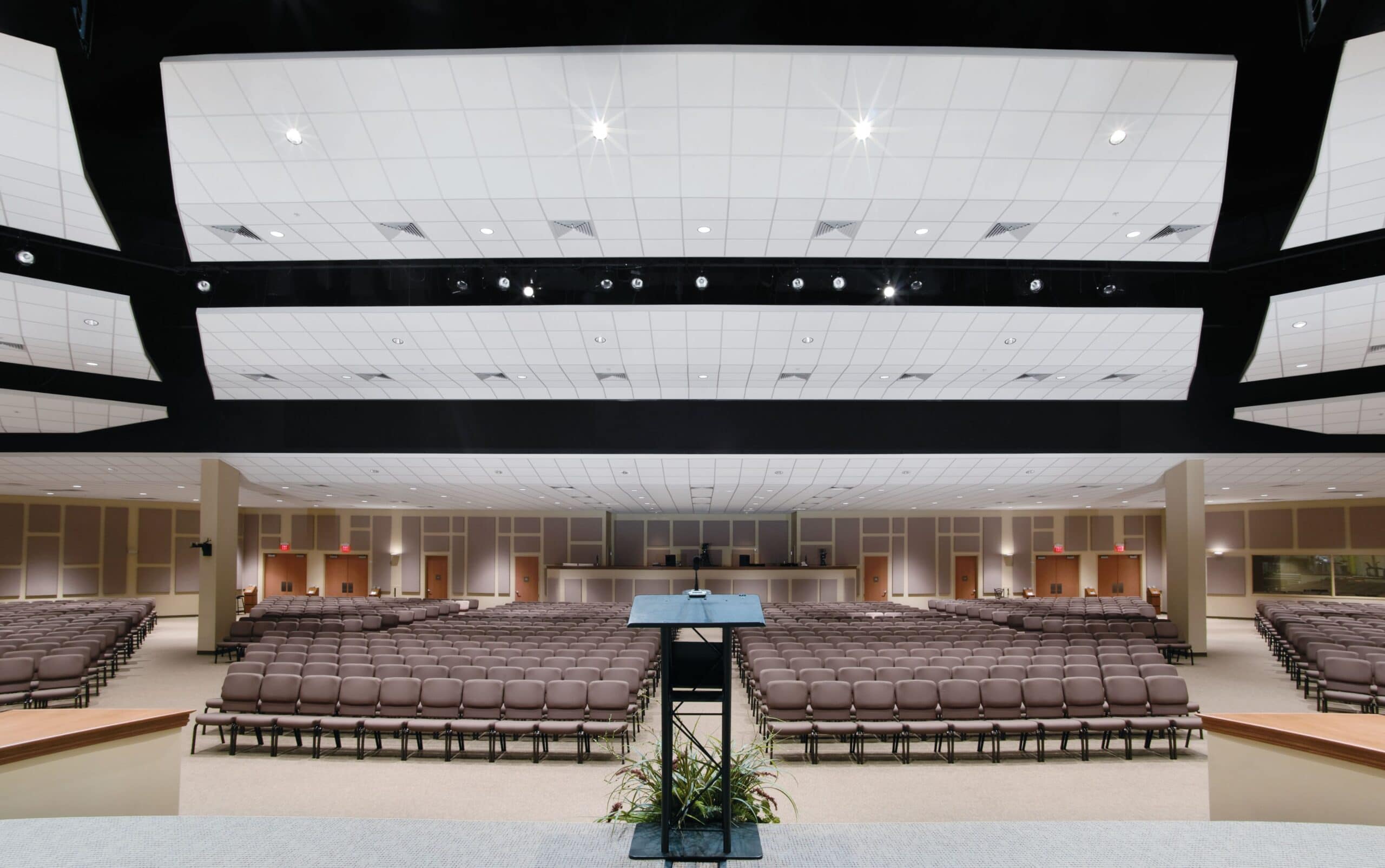
Interior of Calvary Chapel St. Petersburg image from ArmstrongCeilings.com
The Denominations of Protestantism
As Protestantism spread, new denominations emerged, each with its own unique practices and beliefs. Mainline Protestants, including Lutherans, Episcopalians, Presbyterians, and Methodists, upheld the foundational principles of the Reformation while incorporating unique liturgical practices and embracing a more diverse theological spectrum.
There are currently 9,000 Protestant denominations. These are the largest:
- Baptists: Advocating adult baptism by immersion, Baptists emphasize the autonomy of the local church congregation and place significant importance on individual conscience.
- Presbyterians: Influenced by Calvinist theology, Presbyterians emphasize the role of church elders (“presbyters”) and have a structured governance system.
- Methodists: Inspired by John Wesley’s teachings, Methodists have traditionally championed social justice and personal holiness, believing in the possibility of Christian perfection.
- Pentecostals: Pentecostals believe in supernatural manifestations within the Church, with a focus on the “gifts” of the Holy Spirit, such as speaking in tongues and divine healing.
Evangelicalism is an interdenominational movement (not a denomination itself). This movement, whose most prominent leaders in the 20 th century included Billy Graham and Rick Warren, traces its roots back to the 1730s, a period known as the First Great Awakening. Evangelicalism emphasizes personal conversion experiences and a fervent, “born again” faith in Christ. Among the core Evangelical tenets are biblical inerrancy, nurturing a direct and personal relationship with God, and evangelism (sharing the message of God).
Evangelicals, who are represented by Baptists, Pentecostals, and non-denominational churches, now make up 60% of all American Protestants. Even as Protestantism shrinks, Evangelicalism is growing.
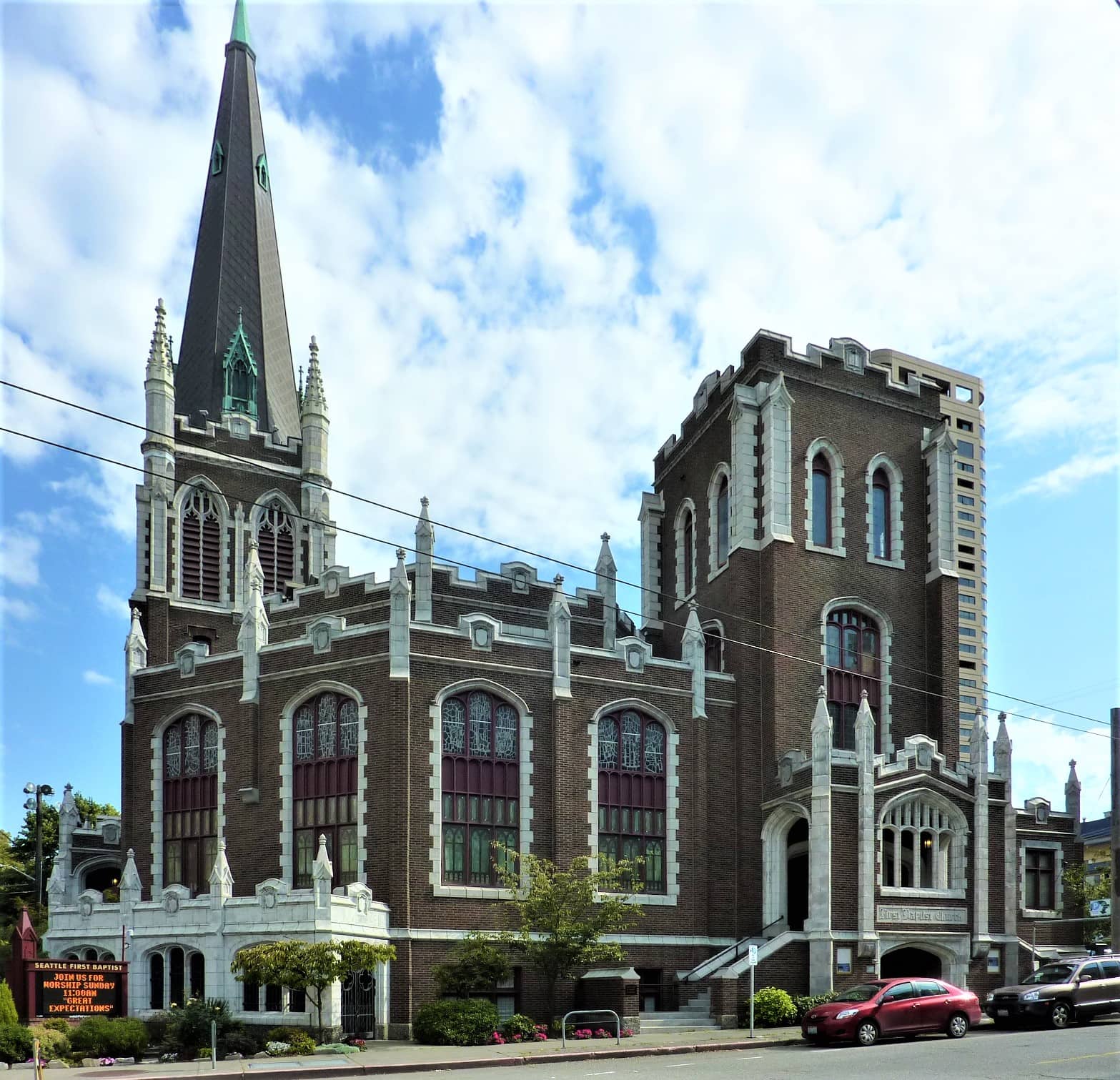
Seattle First Baptist Church
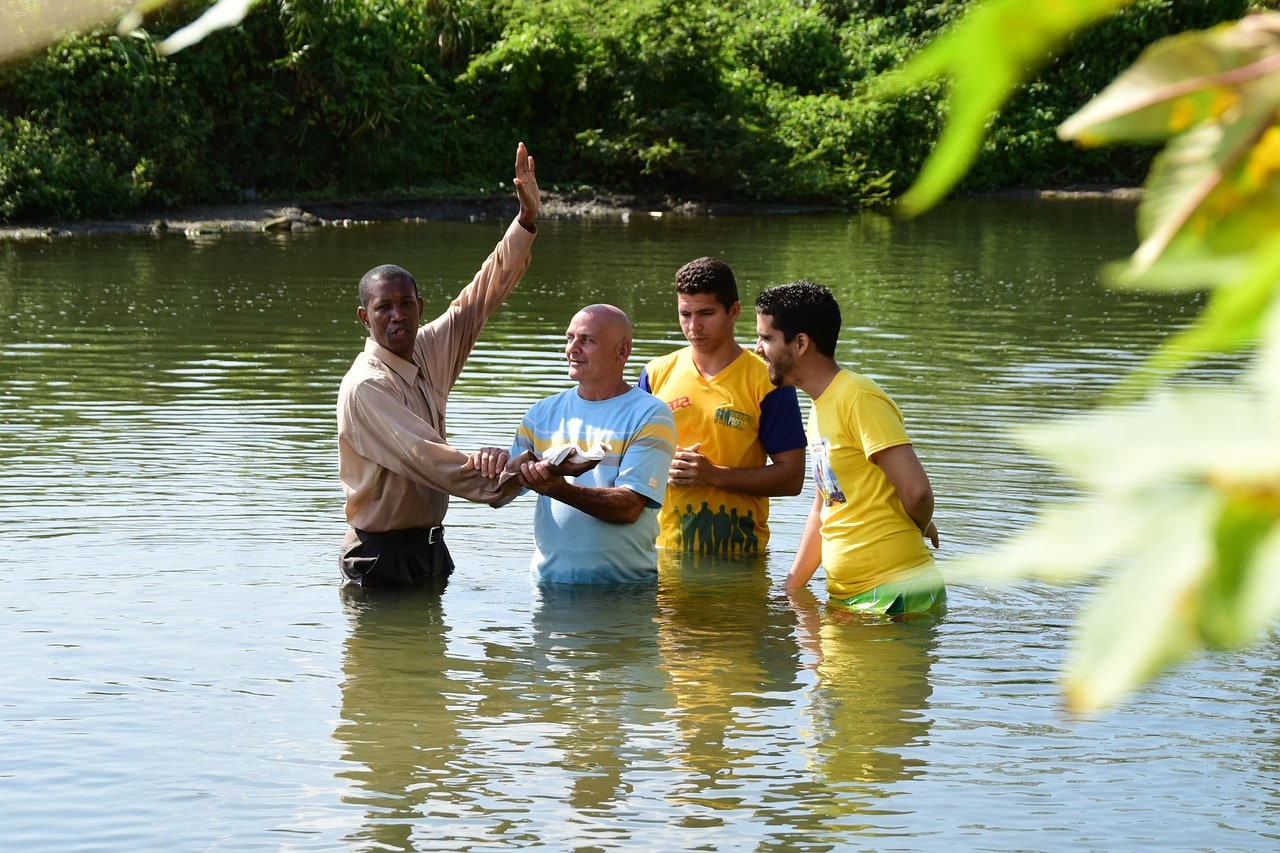
A Baptism at the River
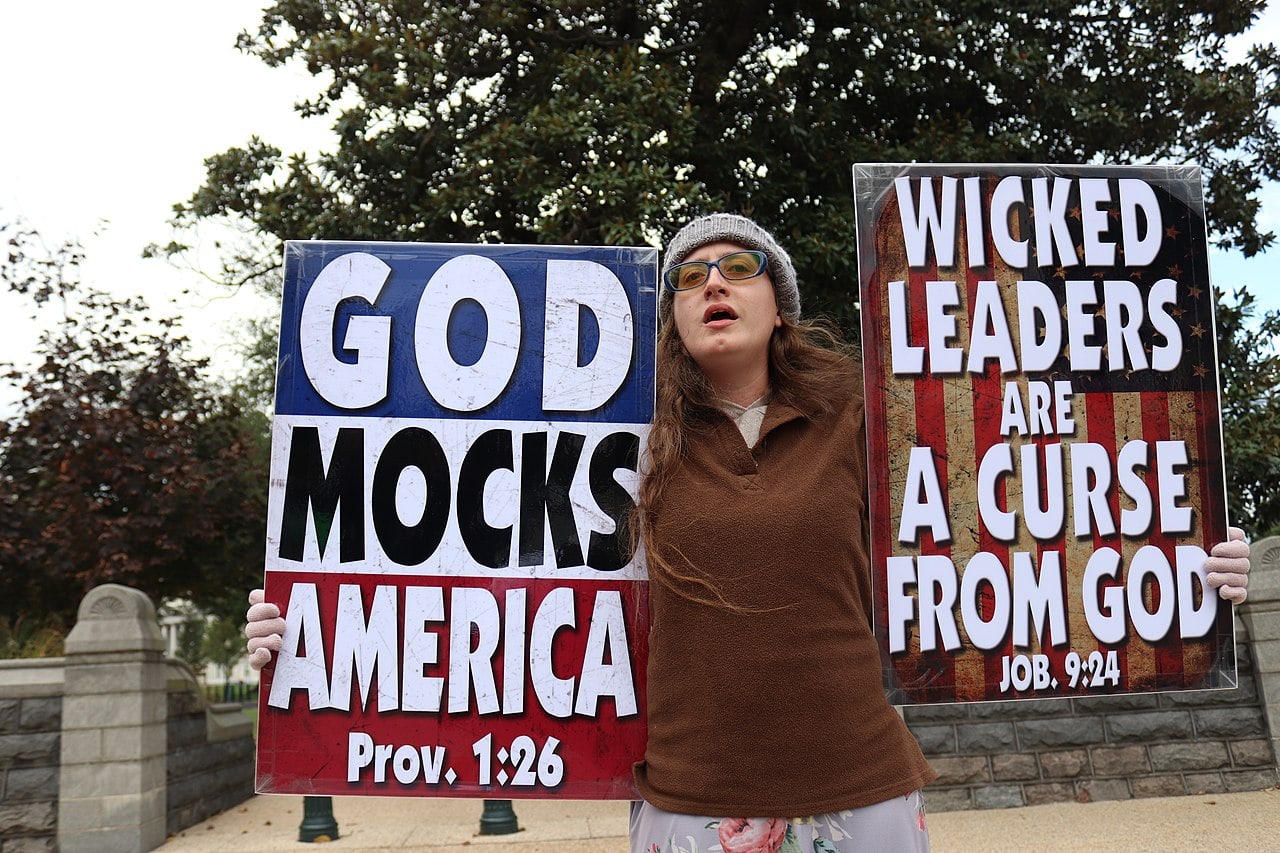
Christian Protestor by Elvert Barnes, licensed under [CC BY-SA 2.0], image from Wikimedia Commons.
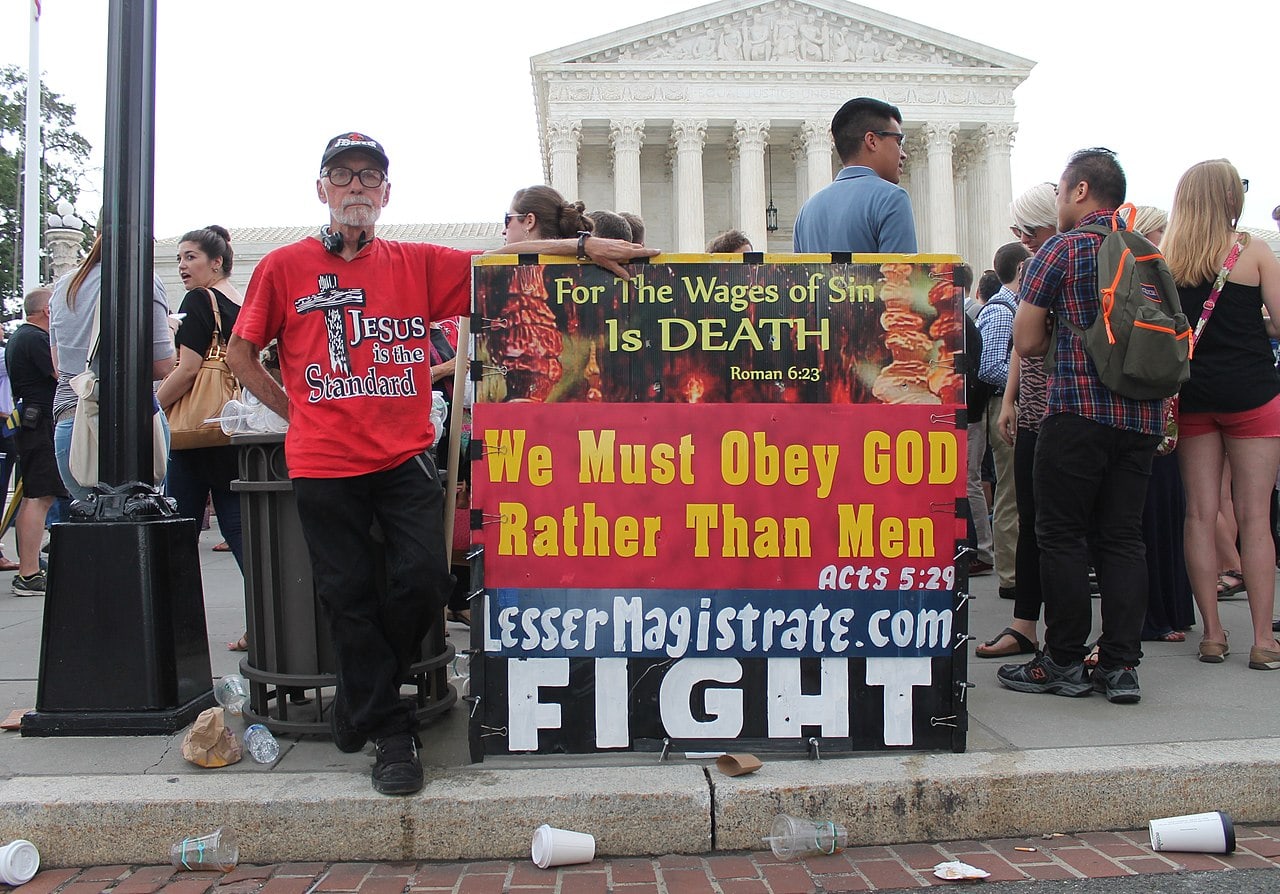
Participant in Obergefell v. Hodges Supreme Court Rally by Elvert Barnes, licensed under [CC BY-SA 2.0], image from Wikimedia Commons.
Protestantism and Politics
Christians have historically been involved in, or even led, social change movements. Christians were involved in the fight for civil rights, with Doctor Martin Luther King, Jr., and Reverend Jesse Jackson being just two of the most prominent figures. Christians have also worked to end slavery, to improve work conditions, and to give women equal rights.
Nonetheless, Christianity has had many darker chapters. In the 19 th century, influential Christians fought to maintain the institution of slavery. In modern times, some still use Biblical texts to justify the subjugation of non-white people, women, and minority groups. The modern Evangelical movement, in particular, has often opposed social equality and progress.
Largely aligned with the Republican Party, Evangelicals overwhelmingly oppose LGBTQ+ rights. They are a driving forcing in anti-transgender rhetoric and policies, and some conservative Christians want to repeal the rights the LGBTQ+ community has gained, like marriage and adoption.
This opposition to LGBTQ+ rights among some Evangelical sects (not all) aligns with an emphasis on so-called “traditional” gender roles. These groups preach that women should be subservient to men, with some of the more hardline members going so far as to argue for ending women’s suffrage and keeping women out of the workforce. Even among less conservative Evangelical groups, opposition to abortion has been a unifying cause that has helped bolster right-wing politicians, most recently President Donald Trump.
On the international stage, the political power of Evangelicals has been transformative. As Trump said after relocating the US embassy to Jerusalem, Evangelical Christians have a greater affinity for the state of Israel than even most Jewish Americans. It is a common belief among Evangelicals, including a number of GOP congressmembers, that Israel’s reemergence as a nation will presage the return of Jesus.
In fact, this belief in the imminent end times colors other political stances. Many Evangelicals (again, not all) express indifference about climate change and the destruction of natural habitats. Earth is seen as a temporary home that Jesus will soon whisk them away from, so why be concerned?
Not all issues are related to Evangelicals’ end times theology. Their missionary work among indigenous peoples is often problematic, eroding indigenous cultures and marginalizing the native populations. The imposition of Western values and religious beliefs can disrupt traditional ways of life, resulting in cultural loss and disempowerment for these communities.
Protestantism’s Impact
Religion is, of course, a deeply personal matter; it cannot be painted with too broad a brush. The billion Protestants worldwide are not a monolith. Many practice an inclusive and compassionate faith.
All the same, the impact of Protestants through their political engagement is substantial. As a political bloc, Evangelical Protestants have the largest influence of any religious group in the US. When theyvote as a unified voice, they’re not only able to stymy social causes, they hamper climate change legislation, curtail immigration, and limit access to healthcare.
From the pulpit to the voting booth, Evangelicals aren’t just reshaping America, they’re steering global events.
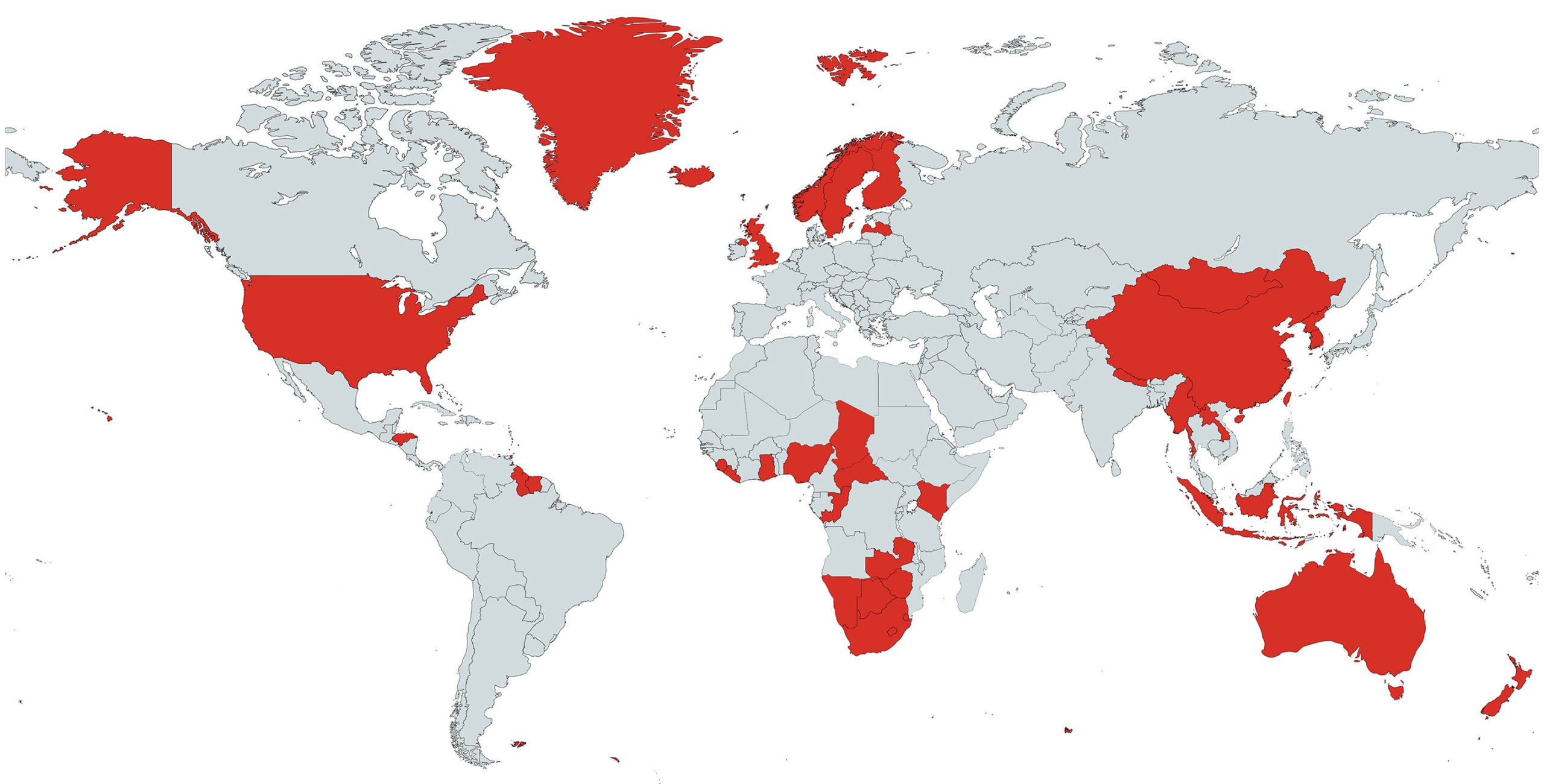
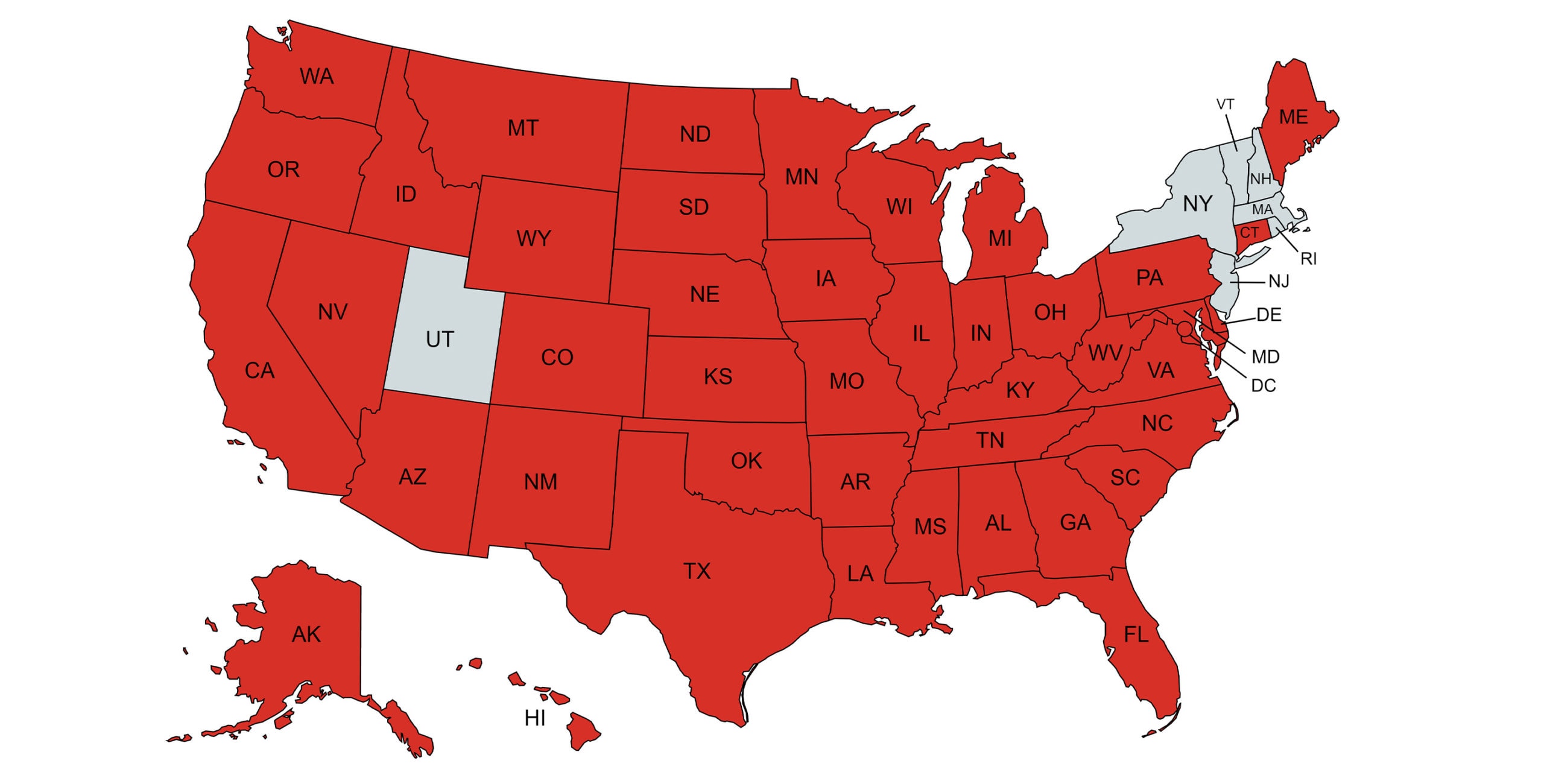 Protestant Majority States
Protestant Majority States